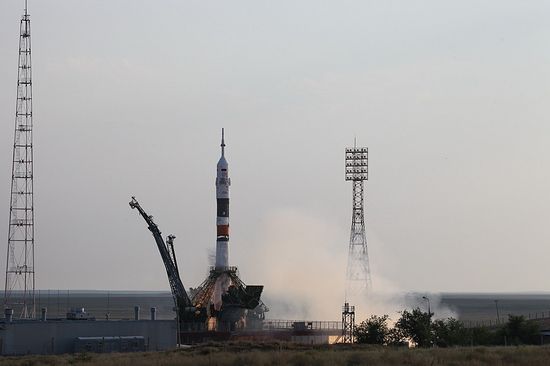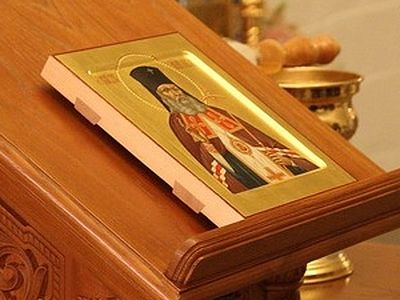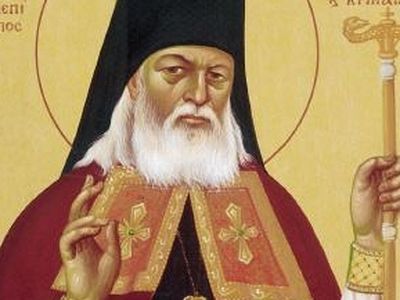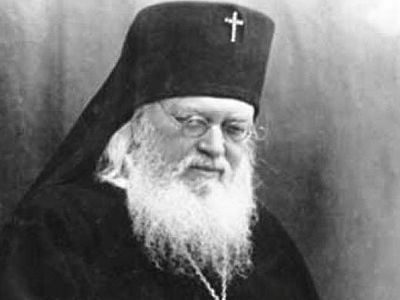Moscow, April 24, 2017
An icon of St. Luke (Voyno-Yasenetsky) the Physician, of Simferopol, one of the most beloved Russian saints of the twentieth century, was delivered to the International Space Station on April 20. The icon was taken aboard the Soyuz MC-04 by Russian astronaut Feodor Yurchikhin and American astronaut Jack Fisher, reports the site of Moscow’s Novospassky Monastery.
The icon was blessed in Novospassky Monastery on March 11 in the Church of St. Romanos the Melodist, in the tomb of the Romanov boyars, by the vicar of His Holiness Patriarch Kirill and deputy abbot of the monastery Bishop Sava of Voskresensk.
Feodor Yurchikhin is a sincere believer and one of the most experienced Russian astronauts. He is currently on his fifth trip into orbit, having spent 534 days, 2 hours, and 33 minutes in space, and 31 hours and 54 minutes on the space station.
According to one of the organizers of the send, chairman of the board of the Fraternity of Orthodox Leaders of Culture, Science and Education Yuri Alekseevich Serov, the event was made possible thanks to the executive director of the manned space program of the state RosCosmos corporation astronaut Sergei Konstantinovich Krikalev, who orbited the earth more than 1,000 times on board the Soyuz TMA-6 in 2005 with a copy of the miraculous Valaam Icon of the Mother of God.
“When I had the icon in my hands I felt an unprecedented surge of strength and unwillingness to part with it. I am sure that the icon of St. Luke will fill these Paschal days with bright joy and help the international crew of the International Space Station to celebrate the forthcoming Victory Day, and to remember that in the recent past our people were in a battle with evil such as fascism,” Serov added.
The icon is expected to return in June 2017.
The icon’s arrival and stay on the space station is timed to the 140th anniversary of St. Luke’s birth on May 9, 2017. St. Luke was a beloved bishop and physician who treated innumerable people, many of whom are still alive today. In 1946 he was awarded a first degree Stalin Prize, but was later subject to repressions, being exiled for eleven years. He was rehabilitated in April 2000, and later that same year was canonized by the Russian Orthodox Church in the assembly of Russian New Martyrs and Confessors.






